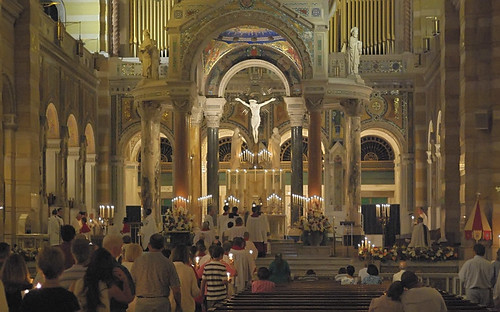
A very low camera angle, behind the church, with the moon at the upper right. Photo taken at sunset, after the Solemn High Mass for the Feast of Saints Peter and Paul.

“Catholic St. Louis contains the beautiful photographs you expect in a pictorial history. But Abeln’s detailed images and his fresh perspective invite readers to notice things easily overlooked. Whether it is the pelican on the altar rail in All Souls or the Gateway Arch in a stained glass window at St. Raymond’s Cathedral, Abeln shows us something new. Photographs are taken at different times of day in different seasons with different lighting. They illustrate the various forms of beauty found inside and outside the churches....Click for full review, written by Jennifer Alexander.
“In both the introduction and the profiles of the individual churches, Faherty shares some of the St. Louis history he has studied for many years. At 94, Faherty adds to the dozens of books he has written. His subjects include Henry Shaw, the Missouri Botanical Garden and the St. Louis Cathedral Basilica. He has also written novels, a book about NASA and histories of St. Louis Irish and German Catholics. Faherty has contributed much to local history and is widely admired for his unflagging energy, curiosity and wealth of knowledge.”
Then Nero, having summoned Agrippa the proprætor, said to him: It is necessary that men introducing mischievous religious observances should die. Wherefore I order them to take iron clubs, and to be killed in the sea-fight. Agrippa the proprætor said: Most sacred emperor, what you have ordered is not fitting for these men, since Paul seems innocent beside Peter. Nero said: By what fate, then, shall they die? Agrippa answered and said: As seems to me, it is just that Paul's head should be cut off, and that Peter should be raised on a cross as the cause of the murder. Nero said: You have most excellently judged.
Then both Peter and Paul were led away from the presence of Nero. And Paul was beheaded on the Ostesian road.
And Peter, having come to the cross, said: Since my Lord Jesus Christ, who came down from the heaven upon the earth, was raised upon the cross upright, and He has deigned to call to heaven me, who am of the earth, my cross ought to be fixed head down most, so as to direct my feet towards heaven; for I am not worthy to be crucified like my Lord. Then, having reversed the cross, they nailed his feet up.
And the multitude was assembled reviling Cæsar, and wishing to kill him. But Peter restrained them, saying: A few days ago, being exhorted by the brethren, I was going away; and my Lord Jesus Christ met me, and having adored Him, I said, Lord, whither are You going? And He said to me, I am going to Rome to be crucified. And I said to Him, Lord, were You not crucified once for all? And the Lord answering, said, I saw you fleeing from death, and I wish to be crucified instead of you. And I said, Lord, I go; I fulfil Your command. And He said to me, Fear not, for I am with you. On this account, then, children, do not hinder my going; for already my feet are going on the road to heaven. Do not grieve, therefore, but rather rejoice with me, for today I receive the fruit of my labours. And thus speaking, he said: I thank You, good Shepherd, that the sheep which You have entrusted to me, sympathize with me; I ask, then, that with me they may have a part in Your kingdom. And having thus spoken, he gave up the ghost.
And immediately there appeared men glorious and strange in appearance; and they said: We are here, on account of the holy and chief apostles, from Jerusalem. And they, along with Marcellus, an illustrious man, who, having left Simon, had believed in Peter, took up his body secretly, and put it under the terebinth near the place for the exhibition of sea-fights in the place called the Vatican...
And the consummation of the holy glorious Apostles Peter and Paul was on the 29th of the month of June— in Christ Jesus our Lord, to whom be glory and strength.
Is there a formula—some mix of love, work, and psychological adaptation—for a good life? For 72 years, researchers at Harvard have been examining this question, following 268 men who entered college in the late 1930s through war, career, marriage and divorce, parenthood and grandparenthood, and old age.

Many Catholics began to arrive in this area in the year 1800. Settlements began in the Silver Creek, Turkey Hill and Twelve Mile Prairie areas (all surrounding Freeburg). Between 1830-1840, the Catholic population was growing at a surprising rate, with missions being laid out throughout the county.
In the early 1850’s, the Freeburg Catholics began their quest to have the Diocese establish their mission as an official parish. Freeburg was under the reign of the Diocese of Quincy at this time. It would take several years and many written requests to the bishop to achieve this task and finally in 1857, word was received that the Catholic mission at Freeburg would be known as a parish. It would be called St. Joseph Parish.
Fr. Francis Bloesinger, a Circuit Rider from the diocese began to make frequent stops here, and celebrate mass in the newly acquired property of Adam Stephan, which was converted into a small meeting place for services. This property was a log home and was located on the corner of Alton and St. Clair Streets, where the present church stands today. The first recorded baptism is Jacob Reichert on December 9, 1857.

The big German migrations to this area started around 1830 and continued quite strong for the rest of the century. Obviously, the abundance of coal, the availability of cheap fertile farm land, as well as the proximity to the frontier city of St. Louis, only 20 miles to the northwest, are what attracted settlers to Freeburg.The village is on the vast Illinois prairie, and overlies coal seams; mining was at one time an important industry here.
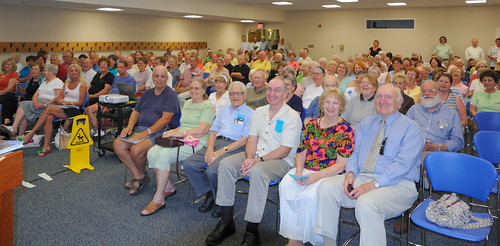

Father William Barnaby Faherty and Photographer Mark Abeln discuss “Catholic St. Louis”
The St. Louis County Library Foundation is pleased to present author William Barnaby Faherty, S.J. and photographer Mark Abeln for a discussion and signing of “Catholic St. Louis.”
The program is free and open to the public. Books will be available for purchase at the event from the Reedy Press.The event will be held on Thursday, June 25th, 2:00 p.m. at the Saint Louis County Library Headquarters, 1640 South Lindbergh Boulevard, Ladue, Missouri.
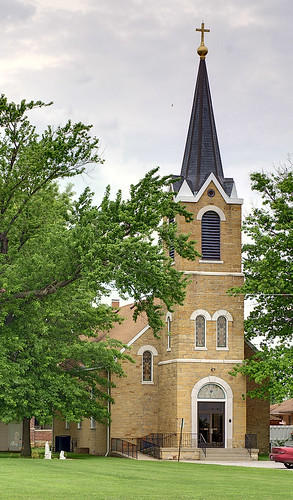
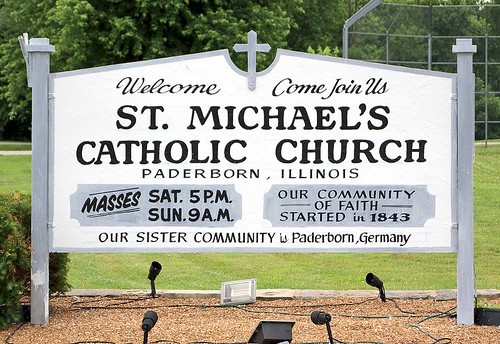

...Faherty, 94, is comfortably at home with the strong ecclesiastical personalities who built their part of this area in the 19th and early 20th centuries. He discusses them with familiarity and definite opinions, and sets out their deeds in the context of their times...Click for full review, written by Sarah Bryan Miller, Classical music critic for the newspaper.
Abeln has an eye for beauty, and profound familiarity with ecclesiastical detail. He finds new focus even in familiar buildings (the New Cathedral) and made me want to visit more of the unfamiliar.
This is a lovely book that should please any fan of local history or church architecture.
1 The sons of wisdom are the church of the just: and their generation, obedience and love.
2 Children, hear the judgment of your father, and so do that you may be saved.
3 For God hath made the father honourable to the children: and seeking the judgment of the mothers, hath confirmed it upon the children.
4 He that loveth God, shall obtain pardon for his sins by prayer, and shall refrain himself from them, and shall be heard in the prayer of days.
5 And he that honoureth his mother is as one that layeth up a treasure.
6 He that honoureth his father shall have joy in his own children, and in the day of his prayer he shall be heard.
7 He that honoureth his father shall enjoy a long life: and he that obeyeth the father, shall be a comfort to his mother.
8 He that feareth the Lord, honoureth his parents, and will serve them as his masters that brought him into the world.
9 Honour thy father, in work and word, and all patience,
10 That a blessing may come upon thee from him, and his blessing may remain in the latter end.
11 The father's blessing establisheth the houses of the children: but the mother's curse rooteth up the foundation.
12 Glory not in the dishonour of thy father: for his shame is no glory to thee.
13 For the glory of a man is from the honour of his father, and a father without honour is the disgrace of the son.
14 Son, support the old age of thy father, and grieve him not in his life;
15 And if his understanding fail, have patience with him, and despise him not when thou art in thy strength: for the relieving of the father shall not be forgotten.
16 For good shall be repaid to thee for the sin of thy mother.
17 And in justice thou shalt be built up, and in the day of affliction thou shalt be remembered: and thy sins shall melt away as the ice in the fair warm weather.
18 Of what an evil fame is he that forsaketh his father: and he is cursed of God that angereth his mother.
— Sirach 3:1-18
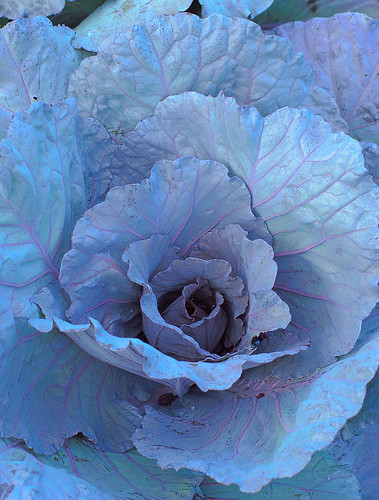
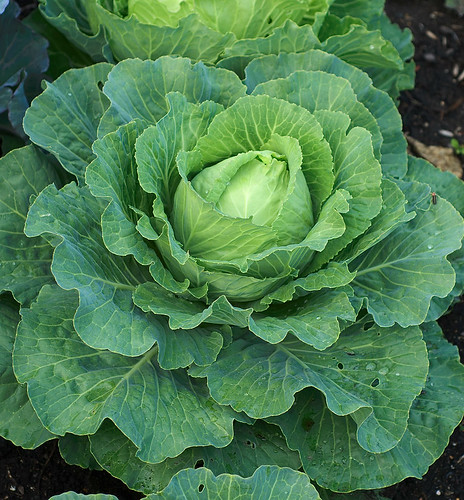
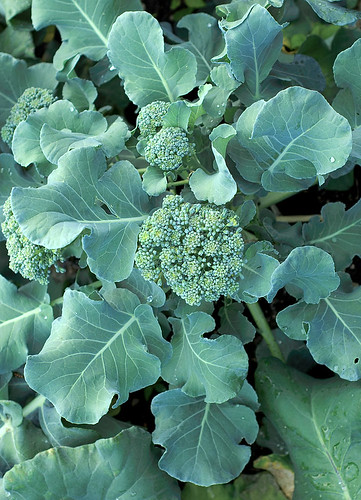


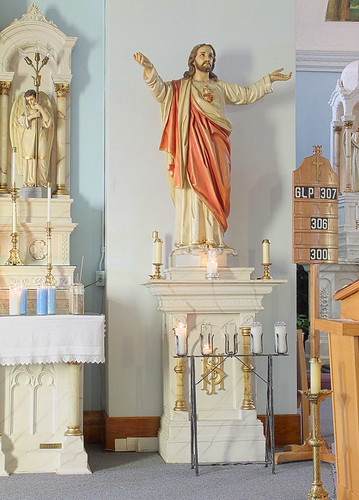
“O God, who in the Heart of Thy Son, wounded by our sins, dost mercifully vouchsafe to bestow upon us the boundless treasures of Thy love: grant, we beseech Thee, that we who now render Him the service of our devotion and piety, may also fulfill our duty of worthy satisfaction.”
— Collect of the missa 'Cogitationes Cordis'

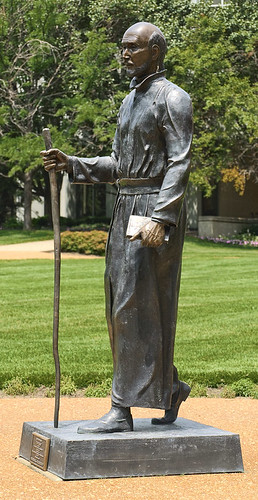
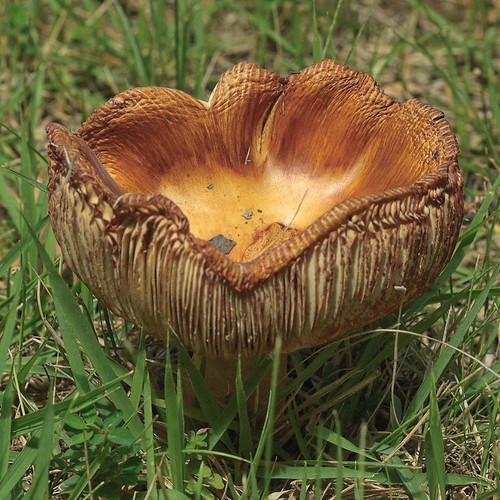

Father William Barnaby Faherty and Photographer Mark Abeln discuss “Catholic St. Louis”
The St. Louis County Library Foundation is pleased to present author William Barnaby Faherty, S.J. and photographer Mark Abeln for a discussion and signing of “Catholic St. Louis.”
The program is free and open to the public. Books will be available for purchase at the event from the Reedy Press.The event will be held on Thursday, June 25th, 2:00 p.m. at the Saint Louis County Library Headquarters, 1640 South Lindbergh Boulevard, Ladue, Missouri.
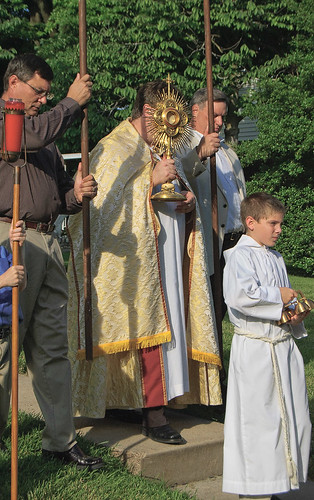
Lauda, Sion, Salvatorem,
Lauda ducem et pastorem,
In hymnis et canticis.
Sion, lift thy voice and sing:
Praise thy Savior and thy King,
Praise with hymns thy Shepherd true.
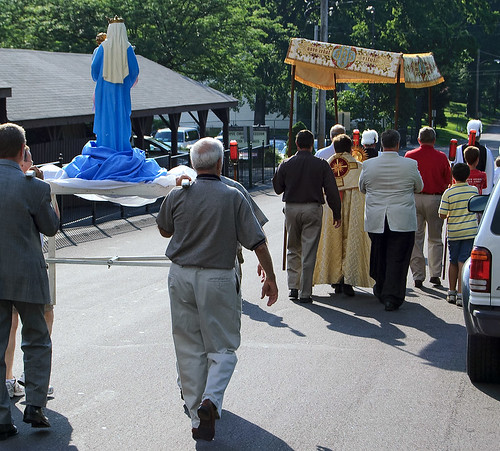
Quantum potes, tantum aude;
Quia major omni laude,
Nec laudare sufficis.
All thou canst, do thou endeavor,
Yet thy praise can equal never
Such as merits thy great King.
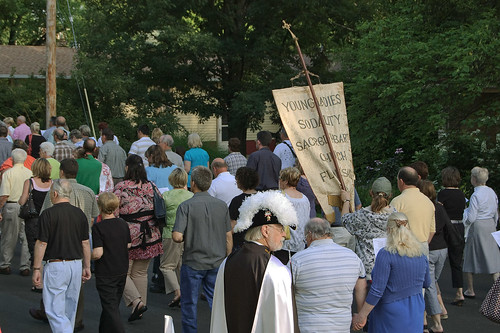
Laudis thema specialis,
Panis vivus et vitalis,
Hodie proponitur.
See today before us laid
The living and life-giving Bread!
Theme for praise and joy profound!
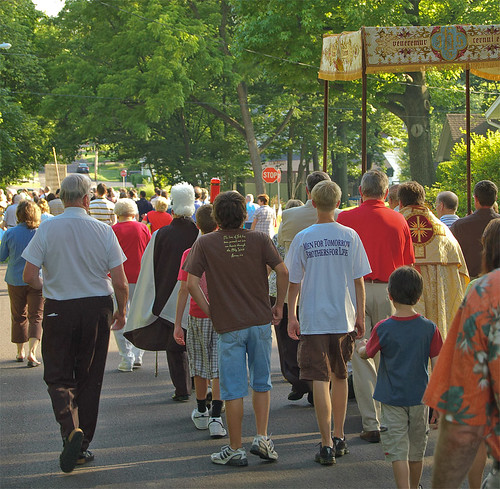
Quem in sacrae mensa coenae,
Turbae fratrum duodenae,
Datum non ambigitur.
The same which at the sacred board
Was, by our incarnate Lord,
Giv'n to His Apostels round.
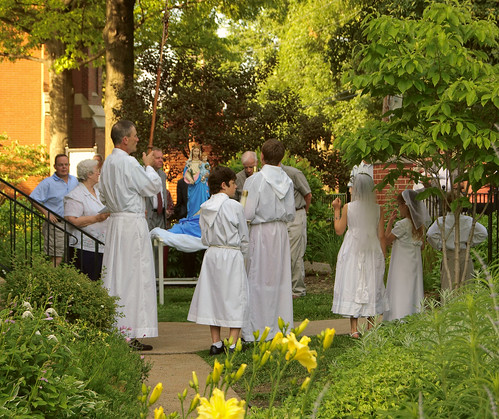
Sit laus plena, sit sonora;
Sit jucunda, sit decora
Mentis jubilatio.
Let the praise by loud and high:
Sweet and tranquil be the joy
Felt today in every breast,
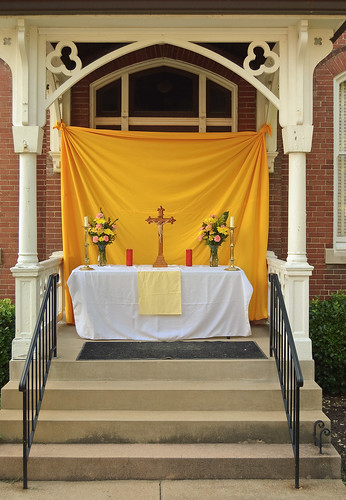
Dies enim solemnis agitur,
In qua mensae prima recolitur
Hujus institutio.
On this festival divine
Which records the origin
Of the glorious Eucharist.

In hac mensa novi Regis,
Novum Pasha novae legis
Phase vetus terminat.
On this table of the King,
Our new Paschal offering
Brings to end the olden rite.
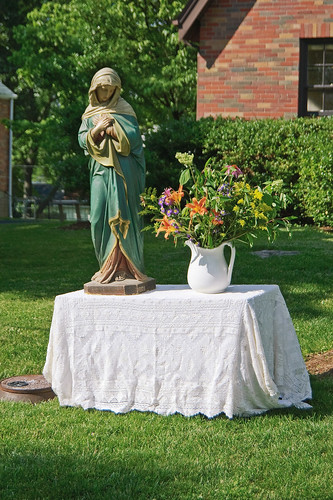
Vetustatem novitas,
umbram fugat veritas,
Noctem lux eliminat.
Here, for empty shadows fled,
Is reality instead;
Here, instead of darkness, light.
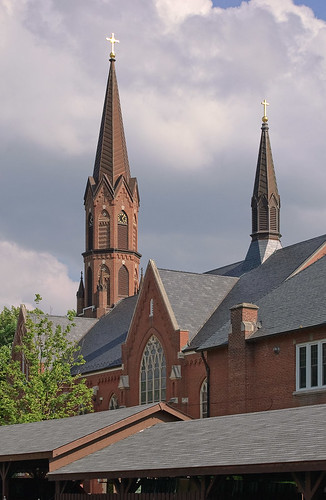
Quod in coena Christus gessit,Saint Francis de Sales Oratory
Faciendum hoc espressit
In sui memoriam.
His own act, at supper seated,
Christ ordain'd to be repeated,
In His memory divine;
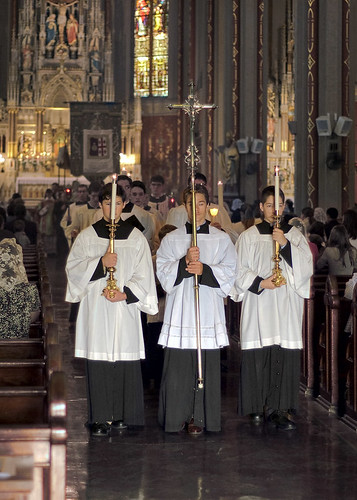
Docti sacris institutis,
Panem, vinum, in salutis
Consecramus hostiam.
Wherefore now, with adoration,
We, the Host of our salvation,
Consecrate from bread and wine,

Dogma datur Christianis,
Quod in carnem transit panis,
Et vinum in sanguinem.
Hear what holy Church maintaineth,
That the bread its substance changeth
Into Flesh, the wine to Blood.

Quod non capis, quod non vides,
Animosa firmat fides,
Praeter rerum ordinem.
Doth it pass thy comprehending?
Faith, the law of sight transcending
Leaps to things not understood,
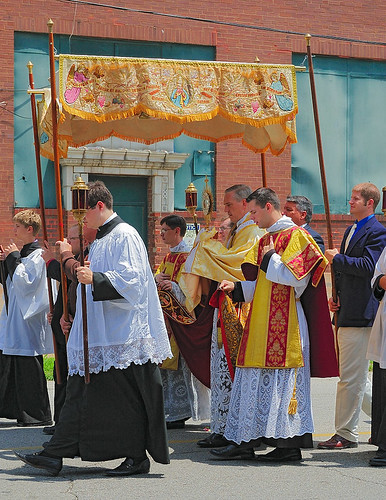
Sub diversis speciebus,
Signis tantum, et non rebus,
Latent res eximiae.
Here beneath these signs are hidden
Priceless things, to sense forbidden
Signs, not things, are all we see.

Caro cibus, sanguis potus;
Manet tamen Christus totus
Sub utraque specie.
Flesh from bread, and Blood from wine,
Yet is Christ in either sign,
All entire, confessed to be.

A sumente non concisus,
Non confractus, non divisus,
Integer accipitur.
They, who of Him here partake,
Sever not, nor rend, nor break:
But, entire, their Lord receive,
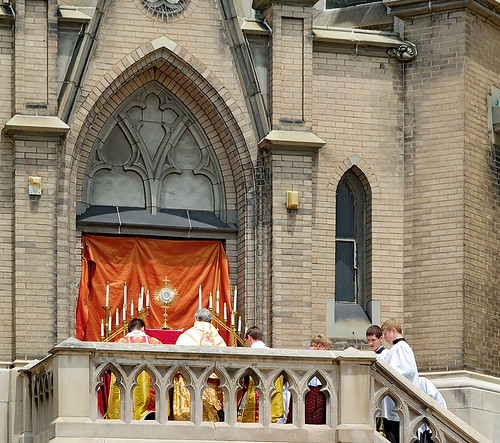
Sumit unus, sumunt mille:
Quantum isti, tantum ille:
Nec sumptus consumitur.
Whether one or thousands eat,
All receive the self-same meat,
Nor the less for others leave,
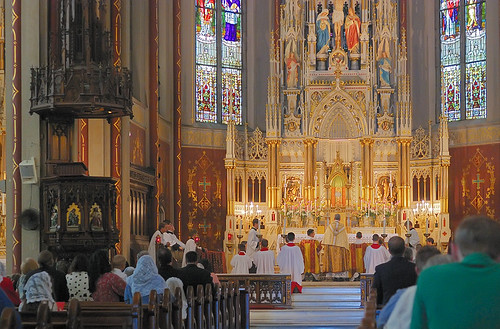
Sumunt boni, sumunt mali,Cathedral Basilica of Saint Louis
Sorte tamen inaequali
Vitae vel interitus.
Both the wicked and the good
Eat of this celestial Food;
But with ends how opposite!
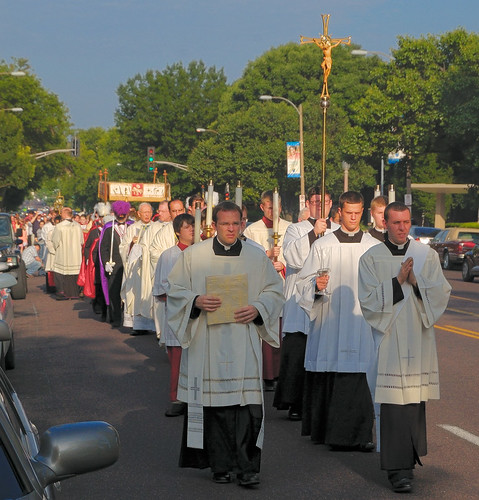
Mors et malis, vita bonis:
Vide paris sumptionis
Quam sit dispar exitus.
Here 'tis life: and there 'tis death:
The same, yet issuing to each
In a difference infinite.
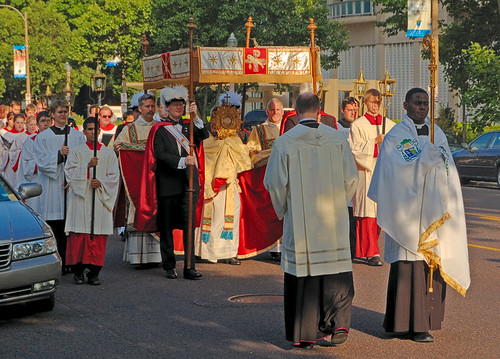
Fracto demum sacramento,
Ne vacilles, sed memento
Tantum esse sub fragmento
Quantum toto tegitur.
Nor a single doubt retain,
When they break the Host in twain,
But that in each part remains
What was in the whole before;
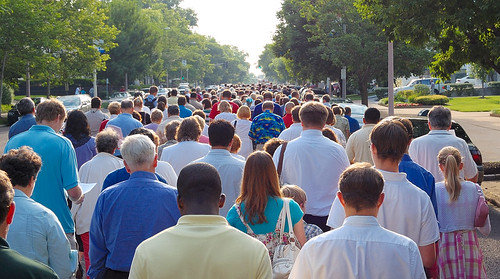
Nulla rei fit scissura:
Signi tantum fit fractura:
Qua nec status nec statura
Signati minuitur.
Since the simple sign alone
Suffers change in state or form,
The signified remaining one
And the same for evermore.
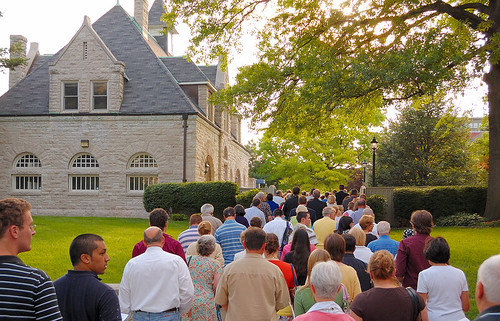
Ecce panis Angelorum,
Factus cibus viatorum,
Vere panis filiorum.
Non mittendus canibus.
Lo! upon the altar lies,
Hidden deep from human eyes,
Bread of Angels from the skies,
Made the food of mortal man;
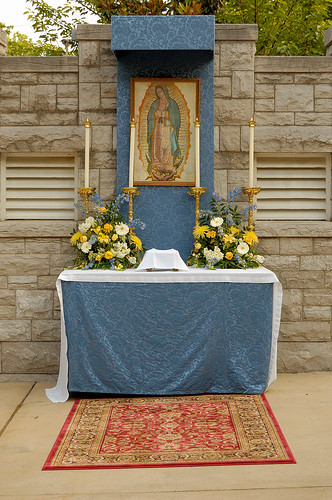
In figuris praesignatur,
Cum Isaac immolatur:
Agnus paschae deputatur;
Datur manna patribus.
Children's meat to dogs denied,
In old types presignified:
In the manna heaven-supplied
In Isaac, and the Paschal lamb.

Bone pastor, panis vere,
Jesu, nostri miserere:
Tu nos pasce, nos tuere,
Tu nos bona fac videre
In terra viventium.
Jesu! Shepherd of the sheep!
Thou Thy flock in safety keep,
Living Bread! Thy life supply:
Strengthen us, or else we die:
Fill us with celestial grace!
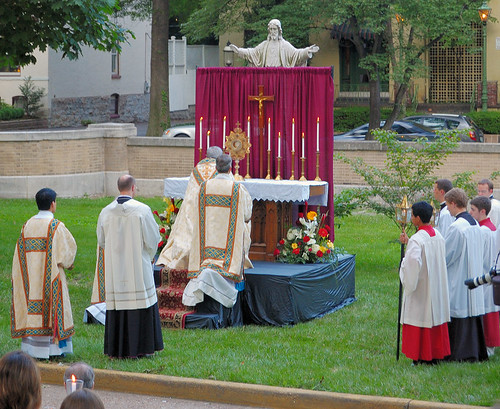
Tu, qui cuncta scis et vales,
Qui nos pascis hic mortales,
Tuos ibi commensales,
Cohaeredes et sodales,
Fac Sanctorum civium.
Thou, who feedest us below!
Source of all we have or know!
Grant that with Thy Saints above,
Sitting at the feast of love,
We may see Thee face to face.
Amen. Alleluia.
